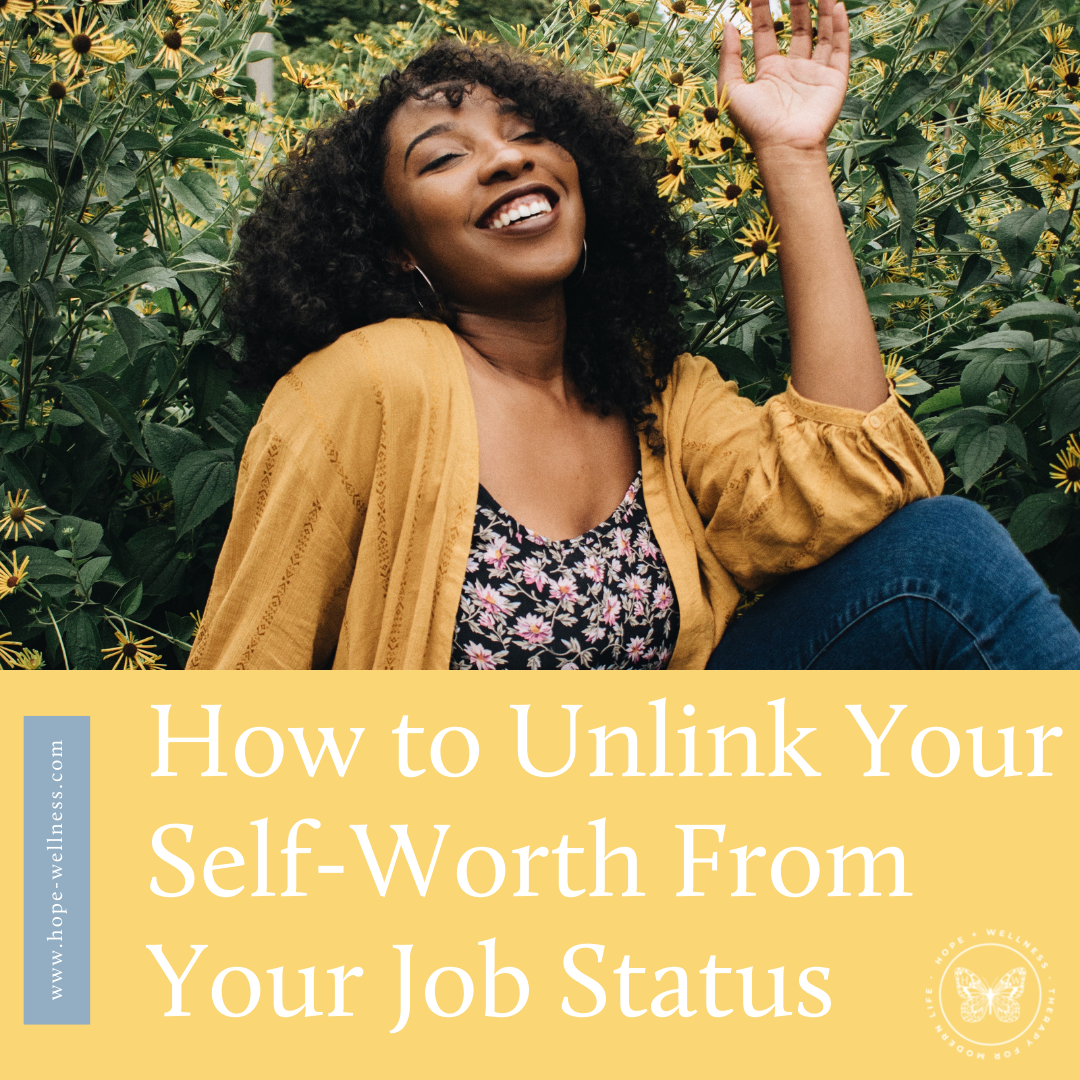
Hope +Wellness Blog
little snippets of advice for everyday challenges many people share

Who Can Benefit from Inner Child Work?
Inner child work isn’t about blaming or hating your family. It’s about identifying needs you had that weren’t met and wounds you suffered that have yet to heal. It’s about you finding the spots where you need extra care and giving it to yourself, not about condemning the relationships you have in your life.

How to Move Through Grief with Kindness and Self-Compassion
If there was ever a time to be kind to ourselves, it would be during the different seasons of our grief. However, it is not uncommon that we become highly self-critical and particularly unforgiving to ourselves while we are grieving.

How Affirmations Can Help You Be Kinder To Yourself
We live in a world that is full of scary, uncertain things. What if you could count on one thing, always - that you would treat yourself with kindness? The certainty that you will always be kind to yourself can go a long way to making you feel more confident. You deserve to be treated with kindness, especially by yourself.
If you’re looking to start using affirmations, here are 25 affirmations to help you be kinder to yourself.

How to Unlink Your Self-Worth From Your Job Status
If you’ve spent most of your life tying your self-worth to your work, you’re certainly not alone. Here are some ideas for how to cope when you feel like your self-worth relies on your productivity or job status.

6 Ways to Cultivate Self-Compassion
The way that you treat yourself matters. Have you ever noticed the way that you talk to yourself? There are lots of reasons why we’re harder on ourselves than on anyone else. Some folks experienced abuse growing up that taught them not to expect any compassion. Others had caregivers who weren’t nurturing or who constantly criticized them. We hear a lot about self-love, especially in therapy spaces, but self-love isn’t always within reach for people. Starting with self-compassion can be a great way to build up your resilience and confidence.

3 Things Your Inner Child Needs to Hear from You
Have you heard the phrase inner child before? Do you know what it is? Well, it’s exactly what it sounds like! It’s the childhood versions of yourself that you carry with you now. Think about it: as you age you don’t lose those past selves. When you turn eleven, your ten year old self doesn’t stop existing. She’s just now tucked away in the heart of your eleven year old self!
But what does that really mean?

18 Quotes to Inspire Self-Kindness and Self-Compassion
Sometimes it’s hard to accept who we are. We struggle with feeling comfortable in our own skin. We’re hard on ourselves and can’t help but see all the flaws. What’s needed is compassion — not only for others, but ourselves. Here are 18 quotes to inspire self-compassion and peace.

3 Simple Ways to Cultivate Kindness and Self-Compassion
Sometimes we make mistakes that we beat ourselves up for to no end. The voice in our head gets louder and louder and just. wont. stop.
Hope+Wellness is a mental health practice specializing in the treatment of depression, mood, stress, and anxiety in kids, teens, and adults. This is a blog about living well and finding meaning and purpose in the face of difficult challenges. This is a blog about finding hope.
Archive
- ACT
- ADHD
- Acceptance
- Anxiety
- Authenticity
- Belonging
- Bipolar
- CBT
- Calming
- Change
- Chronic Illness
- Chronic Pain
- Communication
- Community
- Coping Skills
- DBT
- Dating
- Depression
- EMDR
- Emotions
- Entrepreneurs
- Friendship
- Gratitude
- Grief
- Health Psychology
- Hope
- Inspiration
- Intimacy
- Intuition
- Joy
- Letting Go
- Love
- Manic Depression
- Mindfulness
- Miscarriage
- OCD
- Parenting
- Personal Growth
- Positive Vibes
- Quotes
- Relationships
- Resources
- Self-Compassion
- Self-Reflection
- Services
- Sleep
- Spirituality
- Stress Management
- Stress Relief
- Suffering